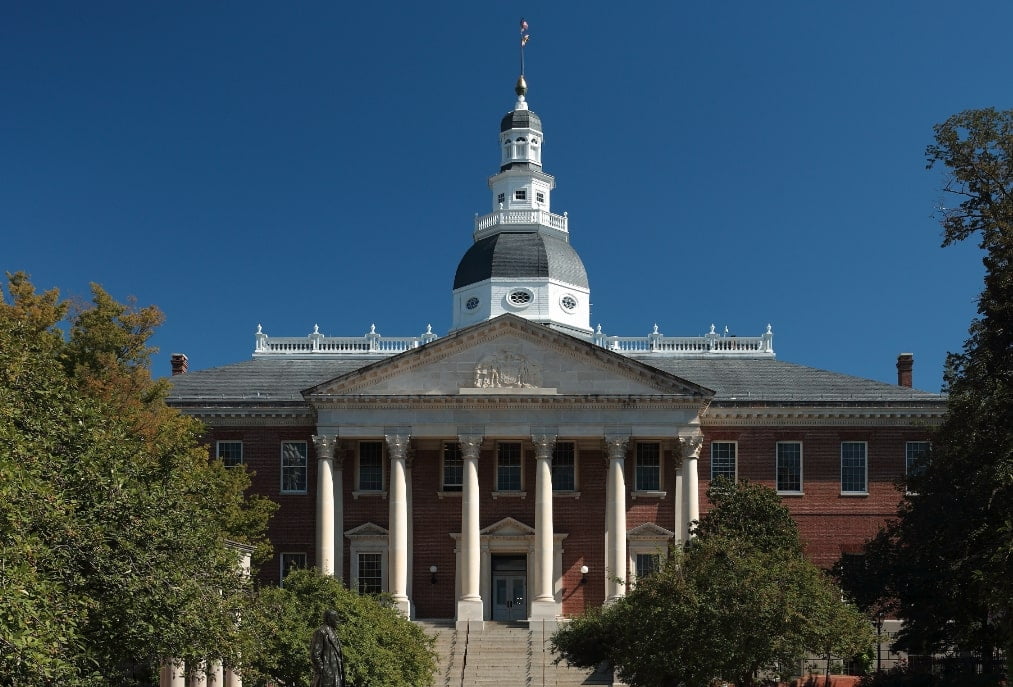
Legislators in the US state of Maryland have voted to approve a bill requiring the deployment of at least 3GW of energy storage by 2033, the latest US state to make such a move.
House Bill 910 was passed by the Maryland General Assembly this week and requires the states’s Public Service Commission (PSC) to establish a ‘Maryland Energy Storage Program’ and set deployment targets.
The targets are a cumulative 750MW by 2027, 1,500MW by 2030 and 3,000MW by 2033, using the delivery year of grid operator PJM which starts on 1 June of the stated year (meaning an ultimate deadline of 31 May 2034). The programme must be presented to the General Assembly by the end of this year and implemented by 1 July 2024.
The 3GW is set in stone and falls at the mid-point of American Clean Power’s (ACP) recommendation of 2.5-3.6GW in a recent study. The way in which to get to that figure is yet to be determined but the Bill outlines two main options.
The first is a ‘system of energy storage credits and market-based incentives designed to develop
a robust energy storage market in the State and deploy energy storage devices in a cost-effective manner’. That would potentially mean layering on incentives to the federal ones brought in by the Inflation Reduction Act, like New York has done for manufacturing.
The second option is a ‘requirement that investor-owned electric companies install or contract for energy storage devices or contract for energy storage credits from an energy storage project under the Maryland Energy Storage Pilot Program’.
That is the route taken by California, which has in the past few years mandated its load-bearing entities to procure renewable and storage resources. The latest project announcement under these frameworks is an eight-hour lithium-ion project by NextEra Energy Resources, reported today.
But other options may also be explored, with the bill adding that the programme could include ‘any other mechanism or policy that PSC determines is appropriate to achieve the goal of a robust cost-effective energy storage system in the State’.
ACP applauded the passing of the bill, with Moira Cyphers, Eastern Region State Affairs Director, saying: “As storage is critical to meeting our nation’s emissions and energy goals, Maryland’s passage of this energy storage bill signals important progress toward building clean energy capacity.”
The bill follows on from a smaller pilot programme which saw the PSC mandate the state’s four big investor-owned utilities to procure two energy storage projects each, of varying types and uses in 2019.
The four utilities are Potomac Edison, Baltimore Gas and Electric, Delmarva Power and Light and Potomac Electric Power. The PSC has approved all eight projects which total 9MW and 31MWh, which started to come online in late 2022. Smaller utilities have been deploying their own projects too, reported by Energy-Storage.news.
States across the US are now setting energy storage targets to ensure deployments can catch up with new renewable resources. Maryland is the latest to in 2023 after Michigan and New Mexico did the same.


